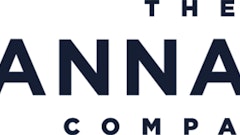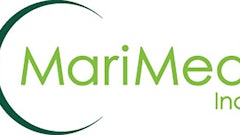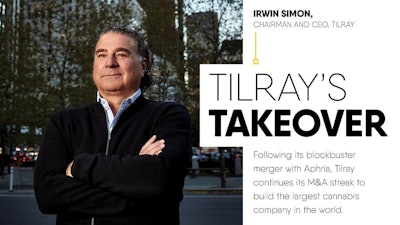
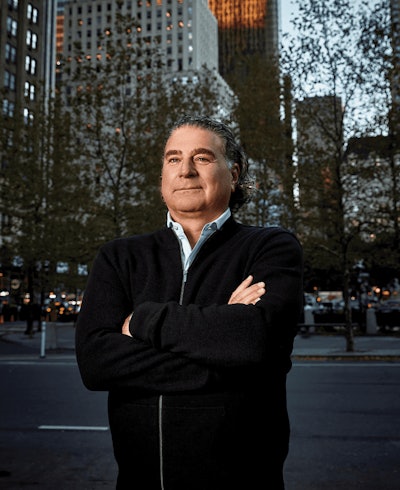
On May 3, 2021, the merger between Tilray Inc. and Aphria Inc. marked a new era of growth by creating the largest cannabis company in the world in terms of revenue and geographic reach. Now, Tilray is well-positioned to compete in the international cannabis market as it continues to enhance its product portfolio through ongoing mergers and acquisitions—building off its acquisitions of U.S.-based craft brewer SweetWater (part of the Aphria merger), and Canada-based hemp food and wellness brand Manitoba Harvest in 2019.
But the driving force behind Tilray’s rapid global expansion isn’t just growth for the sake of increasing revenue, company executives tell Cannabis Business Times. Although profits are critical to ensure value for Tilray shareholders (the company trades on both the Toronto Stock Exchange and the NASDAQ Global Select Market under the ticker “TLRY”), the company is driven by its commitment to improve cannabis access in every corner of the world, providing beneficial products to as many people as possible.
“Tilray is poised to strike and transform the industry with our highly scalable operational footprint, a curated portfolio of diverse medical and adult-use cannabis brands and products, a multi-continent distribution network, and a robust capital structure to fund our global expansion strategy and deliver sustained profitability and long-term value for our stakeholders,” Tilray’s Chairman and CEO, Irwin D. Simon, commented in the corporate press release announcing the Aphria transaction.
Since completing the blockbuster merger, Tilray has integrated its sales and marketing operations, cultivation and production facilities, procurement, packaging, and supporting back-office functions with Ontario-based Aphria, which Irwin led until transitioning to his current leadership position with Tilray.
“We’ve achieved close to $55 million in cost savings by putting the companies together,” Irwin says. “[By] putting Tilray’s growth into the Aphria facilities, we’ll have good margins and operational efficiencies as we focus on building out more [innovative products].”
Now, the company is focusing on strengthening its market share in Canada and ramping up its U.S. infrastructure, while pursuing international growth opportunities abroad.
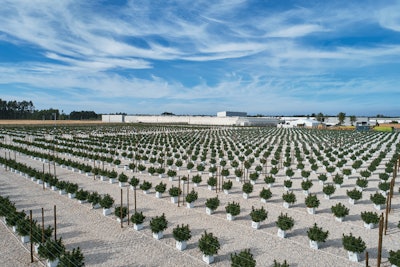
History in the Making
A pioneer in cannabis research, cultivation, and distribution, “Tilray has been a company of many firsts,” explains Denise Faltischek, head of international and chief strategy officer at Tilray.
Tilray became one of Canada’s first licensed producers (LPs) in 2014. By the end of that year, Tilray secured the first institutional investment in the cannabis industry from Founders Fund, a San Francisco-based venture capital (VC) fund. In 2016, Tilray became the first cannabis company to conduct a clinical trial approved by Health Canada to evaluate the therapeutic potential of medical cannabis. In January 2017, it became one of the first companies in Canada to operate a Good Manufacturing Practice (GMP)-certified facility producing pharmaceutical-grade medical cannabis.
More investors followed Tilray’s initial VC investment, and by October 2018, Tilray had raised $1.1 billion. Another monumental first occurred in July 2018, when Tilray became the first cannabis company to complete an Initial Public Offering (IPO) on an American stock exchange, opening on the NASDAQ at $20 per share. By September 2018, shares rocketed to $300.
When the Parliament of Canada legalized adult-use cannabis on October 17, 2018, Tilray was positioned for the pivot. In preparation, Tilray launched its adult-use subsidiary, High Park, in April 2018, which operates a cultivation and processing facility as well as a manufacturing and R&D space (which launched in late 2019) focused on “Cannabis 2.0” products like vapes, edibles, and beverages.
The Aphria merger expands Tilray’s product portfolio with the addition of popular brands like Good Supply and RIFF dried flower and vapes, Chowie Wowie edibles, and the entire product line from Solei Sungrown Cannabis—Aphria’s first adult-use brand that debuted in April 2018, the same month Tilray launched High Park.
These brands remain “top performers” in Canada, Irwin says, where Tilray commands a leading market share of 16%, he adds. By 2024, Irwin expects to nearly double Tilray’s market share in Canada to 30% across both adult-use and medical markets—representing a billion-dollar business there, with another billion-dollar market potential awaiting internationally, he says.
“A big portion of the business we need to focus on now is the medical business,” he says, “(which) has tremendous opportunity, now that countries are opening up, to enable us to sell more medical products to the patients who need it.”
Growing on a Global Scale
Following its pattern of pacesetting firsts, Tilray was “among the first to enter many different countries to bring cannabis to patients around the world,” Faltischek says. Today, Tilray’s reach extends into more than 20 countries across five continents. With “boots on the ground” operations in Canada, the U.S., Germany, France, Italy, Spain, Portugal, Australia, New Zealand, Colombia, and Argentina, Tilray has its sights set on the world domination of cannabis.
“If you want to change the way the world looks at something, it’s important that you do it on an international basis,” Faltischek says. “We believe that medical cannabis has changed people’s lives for the better, and we believe that patients around the world deserve to have access to it. It’s part of our overall vision to use our leverage, our scale, and our expertise that we’ve developed in Canada to bring cannabis to patients everywhere.”
Countries considering medical cannabis regulation and expansion have called on Tilray’s global team to consult with government health officials and provide insights about scalable production standards, according to Faltischek. For example, Tilray provides medical cannabis to a group of patients in France to help the government there assess the viability of bringing medical cannabis into the country, Faltischek says.
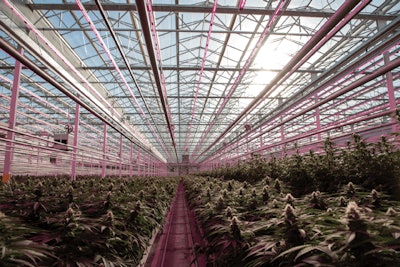
Tilray also owns and operates Germany’s first and only in-country cultivation facility that is certified GMP and licensed under Germany’s Federal Ministry of Health. Tilray also operates a GMP-certified manufacturing facility in Portugal—making it the first and only LP to receive GMP certification in multiple countries, the company claims. These certifications allow Tilray to export cannabis products from Portugal to Germany and other European and international markets where medical cannabis is legal, further expanding its global production scale.
The biggest challenge of this global growth, Irwin says, is maintaining the same level of quality that patients expect as the company expands. To conquer this obstacle, Tilray employs a global standards team to enforce consistent operating procedures across its international operations.
“We’re taking lessons from our cultivation experience in Canada, but also taking the time to understand how that plant reacts in different geographies around the world with different environmental conditions,” Faltischek says. “For every location that you’re in, you need to make sure you understand the environment in which you’re operating.”
For example, when taking cannabis cuttings from a greenhouse in Canada to start Tilray’s indoor cultivation facility in Germany, the team conducted research to study how the plants would adapt to different growing conditions. “We believe it’s really problematic to make a commitment to bring medical cannabis into a country, and then not have that product fully accessible or consistent,” Faltischek says.

Ramping Up U.S. Infrastructure
While building its global medical cannabis empire, Tilray is strategically laying the groundwork for its entry into the U.S. market, where cannabis remains a federally controlled substance. In August 2021, Tilray acquired the majority of the outstanding senior secured convertible notes and associated warrants of Los Angeles-based MedMen Enterprises Inc. However, Tilray’s ability to convert these notes to equity hinges on federal legalization. Upon legalization and other necessary regulatory approvals, the notes and warrants would be convertible and exercisable for approximately 21% of the voting shares of MedMen. With 21 licenses and 25 locations across key urban centers in the U.S., MedMen represents a critical foothold in Tilray’s potential U.S. retail expansion.
“As a company that trades both on the NASDAQ and TSX, we cannot derive any of our profits, income, or sales from cannabis in the U.S., because it’s not federally legal,” Irwin explains. “Because we bought notes—we didn’t buy the company—we’re not earning any income from MedMen. Upon legalization, these notes would convert to equity, so there’s a tremendous opportunity there.”
Until then, Tilray is exploring growth opportunities beyond cannabis by pursuing adjacent business acquisitions in the U.S., like what Aphria did with Atlanta-based SweetWater Brewing Company in November 2020. More adjacent acquisitions like these could help Tilray hedge its bets—putting the company in position to pivot into cannabis-infused products upon legalization, while owning (non-cannabis) revenue-generating businesses until then.
“If we do these option deals, we don’t get sales or EBITDA [earnings before interest, taxes, depreciation, and amortization], and we really have to wait for legalization,” Irwin says. “But if we’re able to buy a craft brewery or spirits business, we do get sales and EBITDA, and then we have the ability to convert it to [cannabis] upon legalization.”
The 11th largest craft brewer in the country, according to the Brewers Association, SweetWater represents a huge potential for Tilray in the burgeoning beverage category. “THC drinks will be a big part of the future,” Irwin says. “Millennials make up the biggest part of the population, and millennials are some of the biggest consumers of [alcoholic seltzers], so I see a big opportunity for infused beverages.”

Fostering Adjacencies in Hemp
Before entering the cannabis industry via Aphria in late 2018, Irwin founded The Hain Celestial Group Inc. (NASDAQ: HAIN), an organic and natural products company, in 1993. Over 25 years, he grew the business to $3 billion in net sales, attracting passionate executives who were committed to the company’s mission of “changing the way the world eats,” says Faltischek, who served as EVP and chief strategy officer at Hain Celestial before following Irwin to Aphria—where the focus shifted to “changing the way the world looks at medicine and health and well-being, as it relates to cannabis,” she says.
Today, several former Hain executives have joined Irwin’s team at Tilray to bolster the company’s approach to food and wellness. The biggest brand in this category is Manitoba Harvest, which Tilray acquired for $316 million in February 2019. As one of the world’s largest hemp food manufacturers, Manitoba Harvest sells a broad portfolio of hemp-based food products such as hemp hearts, hemp seed oil, hemp protein powder, and hemp snacks in 17,000 stores across the U.S. and Canada, including Walmart, Whole Foods, Kroger, and online through Amazon. This extends Tilray’s retail reach into the natural foods sector, with obvious synergies, says Manitoba Harvest President Jared Simon (no relation to Irwin).
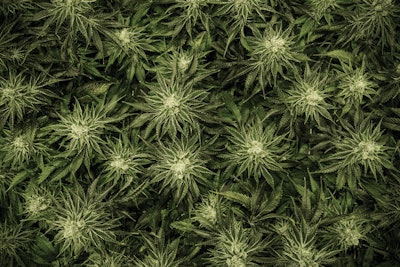
“One of the big synergies was on the research and development side of understanding the value of cannabinoids for their wellness properties,” says Jared, who spent half of his career at Hain Celestial with Irwin. “We’ve been doing a lot of work in parallel with other divisions at Tilray, looking at other cannabinoids and how they may be important to an overall wellness strategy.”
The merger between Tilray and Aphria created a new division, Tilray Wellness, which Jared also heads as president. Blending the team’s vast expertise in natural food products and cannabinoids like CBD, the new business provides a wellness platform to educate consumers about the benefits of hemp-derived CBD. This platform allows Manitoba Harvest to continue focusing solely on hemp foods, while Tilray introduces new business units to explore different applications of CBD.
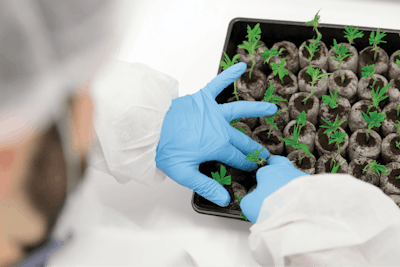
“There still exists a huge amount of confusion in the marketplace amongst consumers and, frankly, amongst retailers in terms of the differences between hemp foods, CBD, and cannabis,” Jared says. “We’re spending a lot of time and energy and resources to educate consumers about the nutritional benefits. Our retailers look to us to be that education leader for their employees and ultimately for their shoppers.”
From social media channels to grocery trade publications and relationships with in-store nutritionists, Manitoba Harvest’s message is “hemp won’t make you high, but it is high in protein, high in fiber, and high in omega-3 (fatty acids),” Jared says. “We see a future in which hemp is going to become more ubiquitous in the diet as an important food source. There will be a tipping point when you start seeing more hemp foods in restaurants and CPG [products], and when that happens, you’ll see a great wave of acceptance by the consumer.”
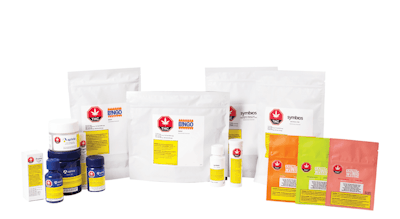
Positioned for Profitability
Tilray’s financial results for the first quarter of fiscal year 2022, which ended August 31, 2021, reflect the company’s dominant position in the marketplace across sectors and geographies. Net revenue increased by 43% to $168 million, compared to $117 million in Q1 2021. This encompasses 38% growth in net cannabis revenue, which totaled $70 million, combined with net beverage revenue of $15 million following the SweetWater acquisition, and another $15 million in wellness revenue from Manitoba Harvest.
In terms of profitability, Tilray’s outlook is equally positive. Despite a net loss of $34.6 million in Q1 2022 (up from a loss of $21.7 million in Q1 2021), the company’s fiscal results reflect adjusted EBITDA of $12.7 million in Q1 2022, marking 58% growth compared to Q1 2021 and the tenth consecutive quarter of positive adjusted EBITDA. The company’s gross profit also increased 46% from $35 million in Q1 2021 to $51 million in Q1 2022.
With these results, the company is “maximizing near-term profitability through leadership in both higher-margin international medical markets and in Canada, complemented by incremental growth at SweetWater and Manitoba Harvest in the U.S.,” Irwin commented in the Oct. 7 press release announcing the financial results. “We believe we are ideally- positioned to succeed … and we look forward to accelerating our momentum as we build the leading CPG business in the global cannabis industry.”
















